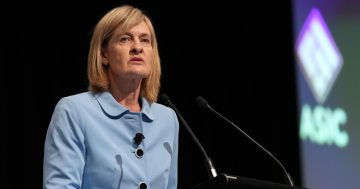Zilla Efrat* says super funds are holding steady as offshore markets fall, inflation grows and interest rates rise.
 Super funds have certainly experienced a volatile ride in recent times as investment markets grapple with rising inflation and interest rates, falls in offshore stock markets, lockdowns in China, the war in Ukraine and a spike in oil prices.
Super funds have certainly experienced a volatile ride in recent times as investment markets grapple with rising inflation and interest rates, falls in offshore stock markets, lockdowns in China, the war in Ukraine and a spike in oil prices.
SuperRatings estimates that the median balanced option fell by 1.1 per cent in April following a small positive return in March.
It places the financial year return to April at around 1.2 per cent.
“We have seen a significant pullback in super fund returns this financial year,” says Kirby Rappell, executive director at SuperRatings.
“It is challenging to say whether super funds will end the financial year to 30 June 2022 in the red or the black at this stage, as it could go either way.
“Balanced and growth options remain slightly in the positive.
“However, there are likely to be significant challenges for markets over the remainder of the financial year.
“Conservative funds are currently estimated to be providing negative returns and tend to see smaller shifts in returns due to their larger focus on defensive assets.
“As such, there is a greater probability of these options seeing out the financial year with a negative one-year return.”
Rappell believes funds with high allocations to growth assets are likely to experience increased volatility over the coming months.
“While this can result in greater returns over the long term, there is also increased risk for any members that may need to access their superannuation monies in a downturn.”
Exposure to private equity will help smooth returns
He adds that exposure to private equity or infrastructure, which tend to be revalued less regularly than equities, will help funds smooth changes in option values, so for members who value smaller changes in their account balance, funds investing more heavily in these assets may be seen as better performing despite potentially lower returns.
According to Rappell, funds with high exposure to equities and listed real assets are likely to see significant negative returns over the short term.
“Sustainable funds are also likely to be disproportionately impacted by the market downturn due to their high exposure to technology stocks which have seen significant falls in asset prices over recent months.”
But while we are seeing meaningful daily fluctuations, Mano Mohankumar, senior investment research manager at Chant West, says markets are not as volatile as they were at the start of the COVID-19 crisis.
“Even if growth funds do finish the year in negative territory, that would be only the fifth time in 30 years since the introduction of compulsory super in 1992,” he says.
Mohankumar points out that whatever the result is for this year, it will come on the back of the 18 per cent return in the 2021 financial year – the second best in the history of compulsory super.
And even in the 2020 financial year, which included COVID-19 and its drag on share markets, the loss was limited to just 0.6 per cent.
“Basically, we’re not selling as such, but we’re building up cash levels.
“We have steady inflows and we have not been deploying that cash,” says John Pearce, chief investment officer at UniSuper.
UniSuper is also reweighting its portfolios and getting out of the higher Beta end in some sectors such as healthcare and technology.
Pearce describes the fund’s performance as a bit of a mixed bag.
“Our conservative options are in slightly positive territory.
“Our growth options are in negative territory.
“There’s still some time until the end of the financial year, so who knows what’s going to happen.
“But I’d imagine a balanced option is going to be pretty flat.
“The conservative options might be flat or up a little bit.
“And, the growth options are going to be down.”
Similarly, with share markets down in mid-May, Mohankumar estimates that financial year return was near break-even, at -0.5 per cent.
Fixed interest and USD have added value
Damian Graham, chief investment officer at Aware Super, says: “From an asset-allocation perspective, we’ve been slightly underweight in fixed interest and overweight in US dollars, and these positions have added value.”
He adds that the effects of market volatility – and the importance of looking through it and not reacting in panic to short-term events – have been a focus in the fund’s communications to members.
While there’s been a slight increase in the number of calls to Aware’s member service centre, Graham says at this stage the fund hasn’t seen any significant changes in member behaviour around switching.
“We’ve had an increase of around 20 per cent recently in the number of members wanting advice about investments, many of them referred from the service centre,” he says.
Pearce says UniSuper members are not panicking as they did at the beginning of COVID-19 in 2020.
“We saw a lot of shifting from growth to defensive and cash options then.
“We’ve certainly seen elevated activity recently, but it’s not to panic levels.”
Pearce says the fund is doing slightly more communications given the market conditions, but he says it is usually a good communicator anyway.
Pearce says the volatility just reinforces past lessons.
“First, one of the few free lunches you get in investing is quality.
If you stick to quality, it might not roar when the markets really roaring, but it’s times like this that investments in quality companies pay off.
“Plus, there is always a place for cash.
“People talk about bonds and property, but the only truly defensive asset is cash.”
*Zilla Efrat is a freelance journalist, editor and copywriter.
This article first appeared at investmentmagazine.com.au.











